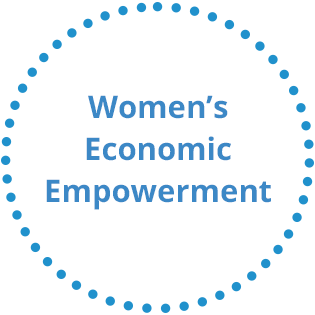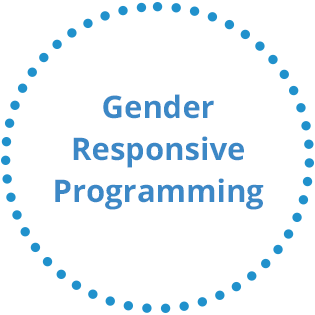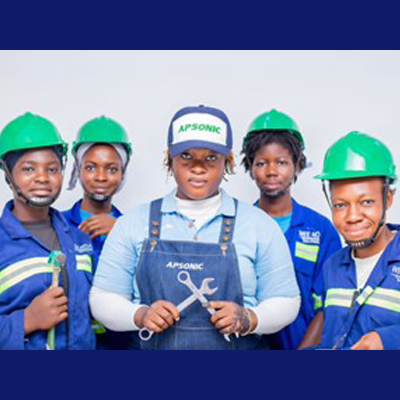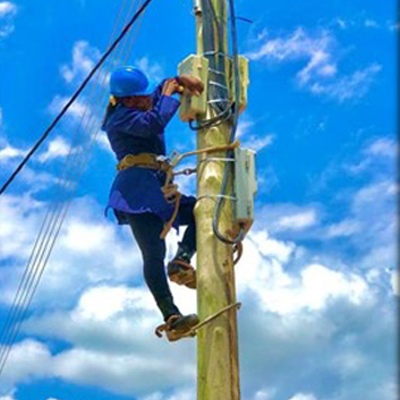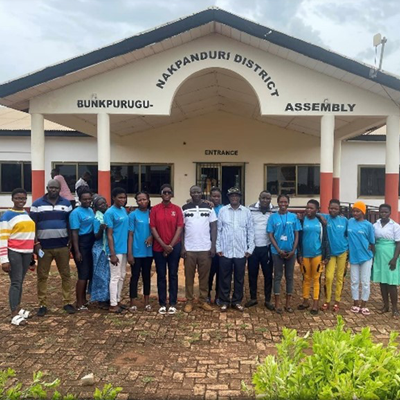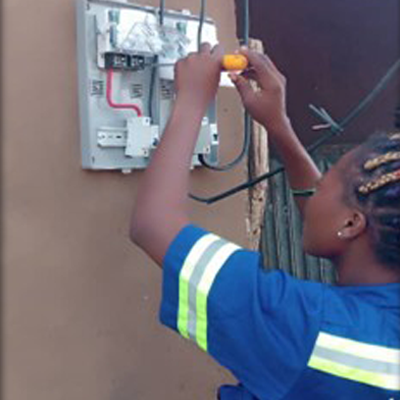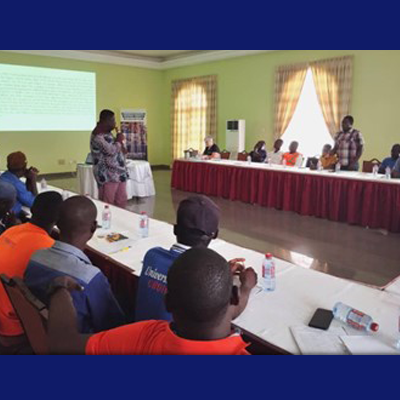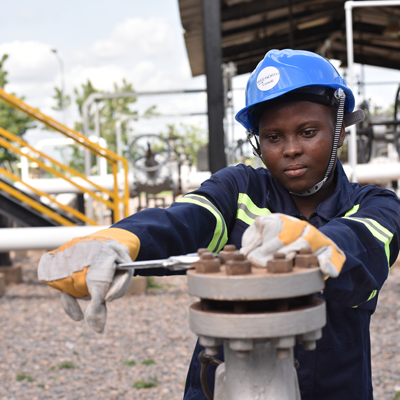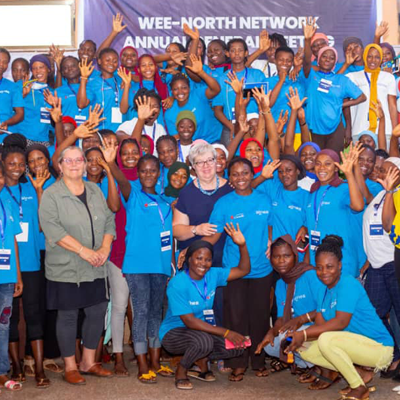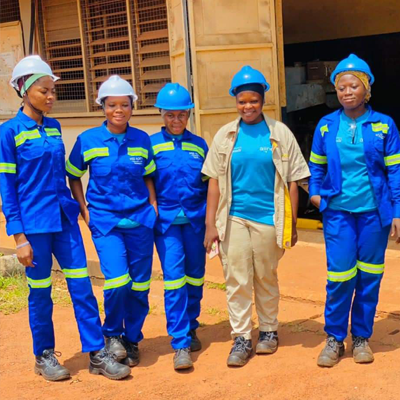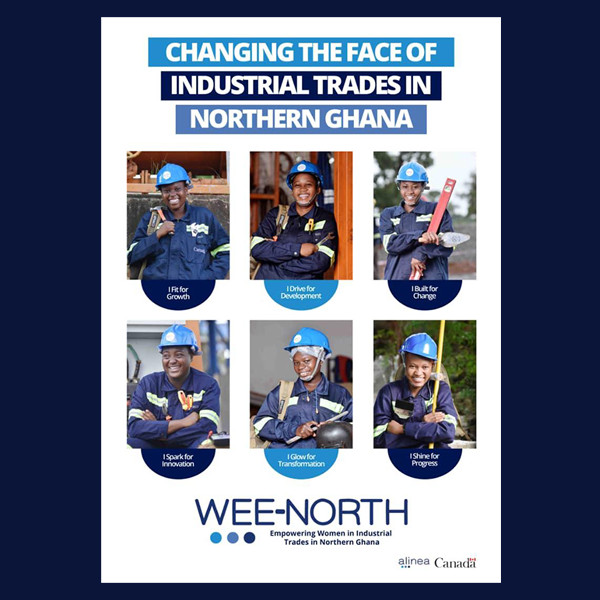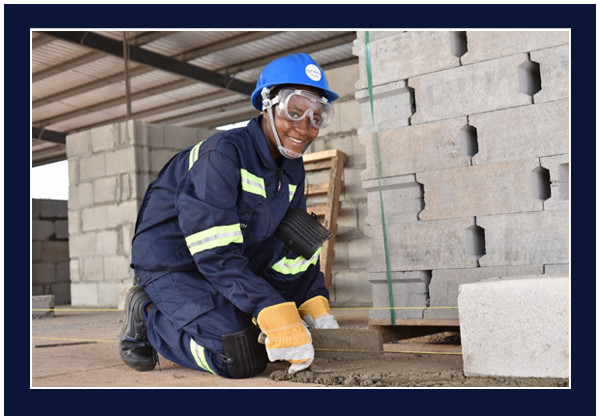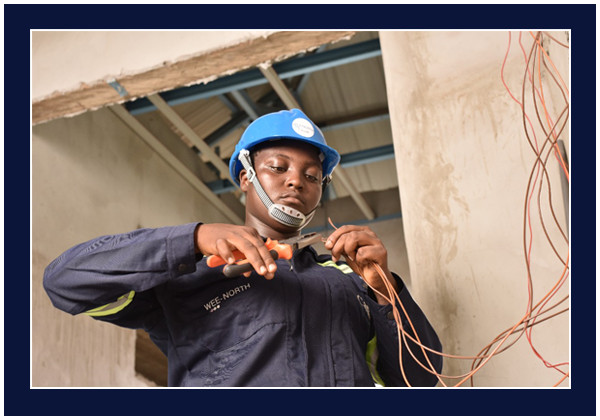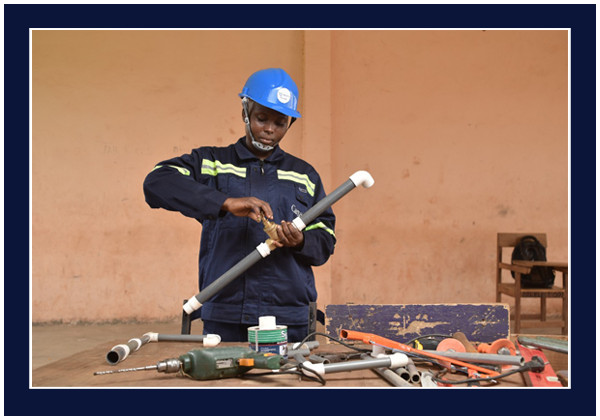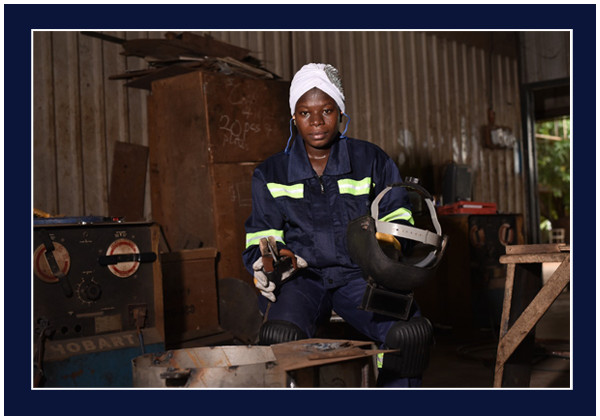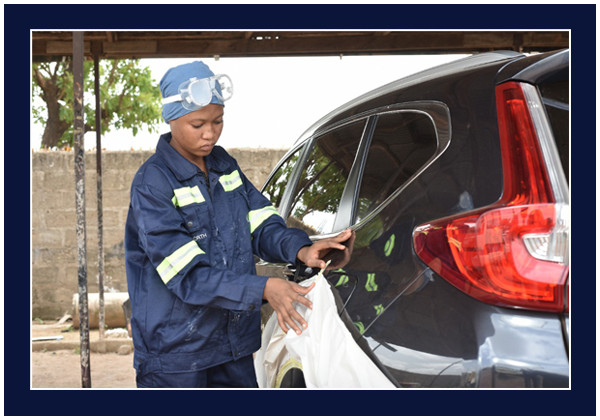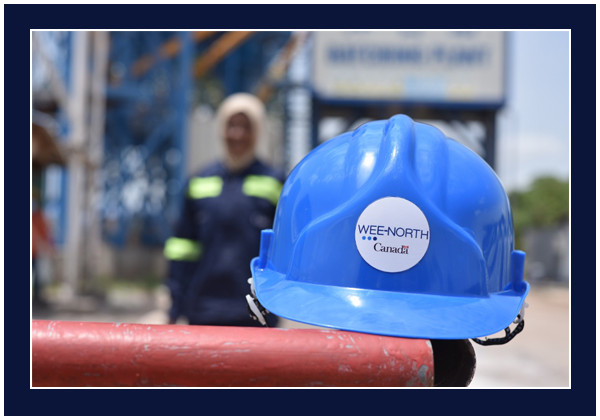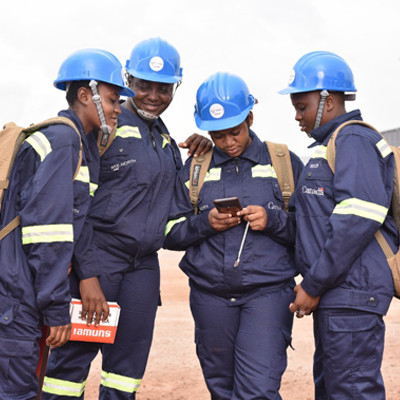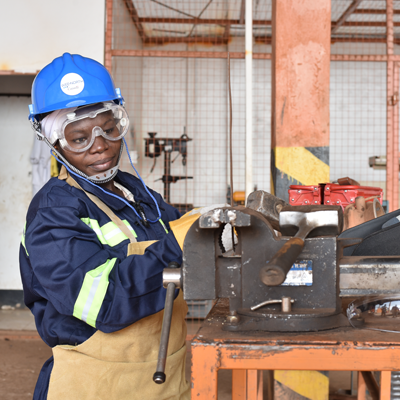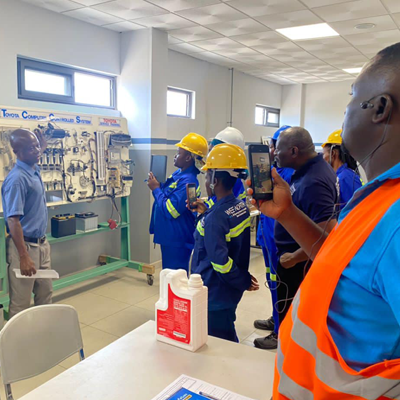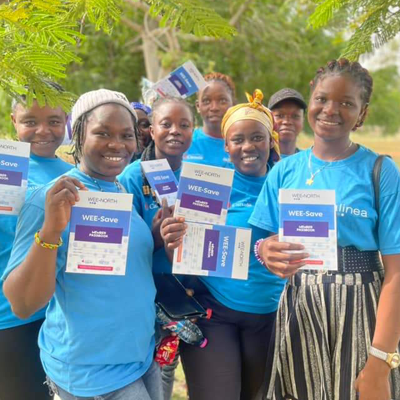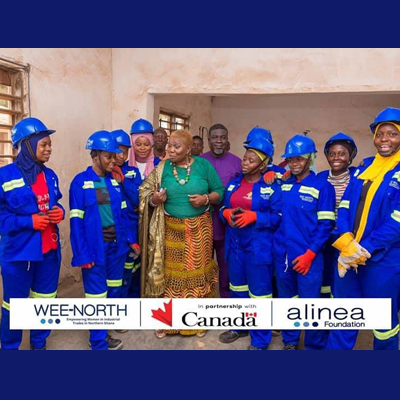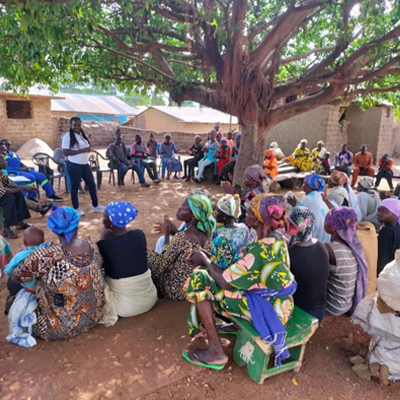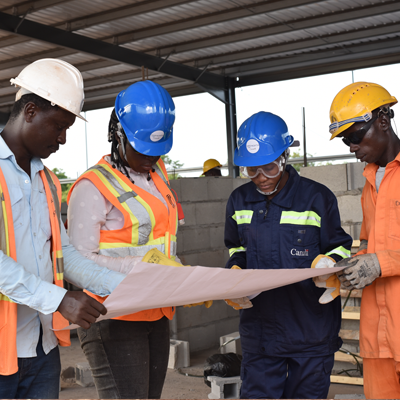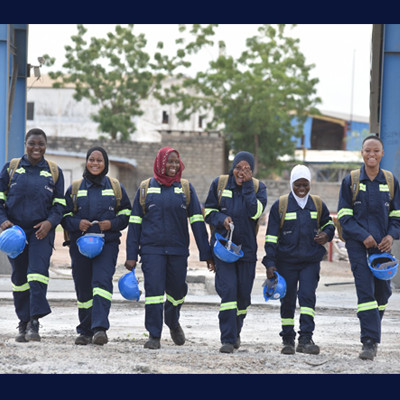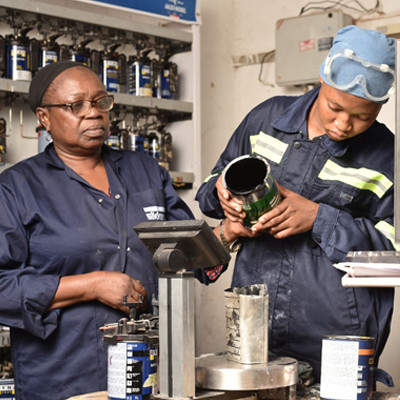
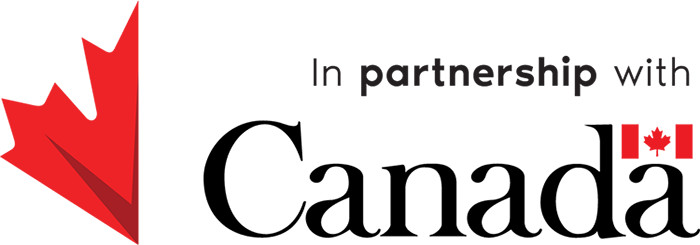
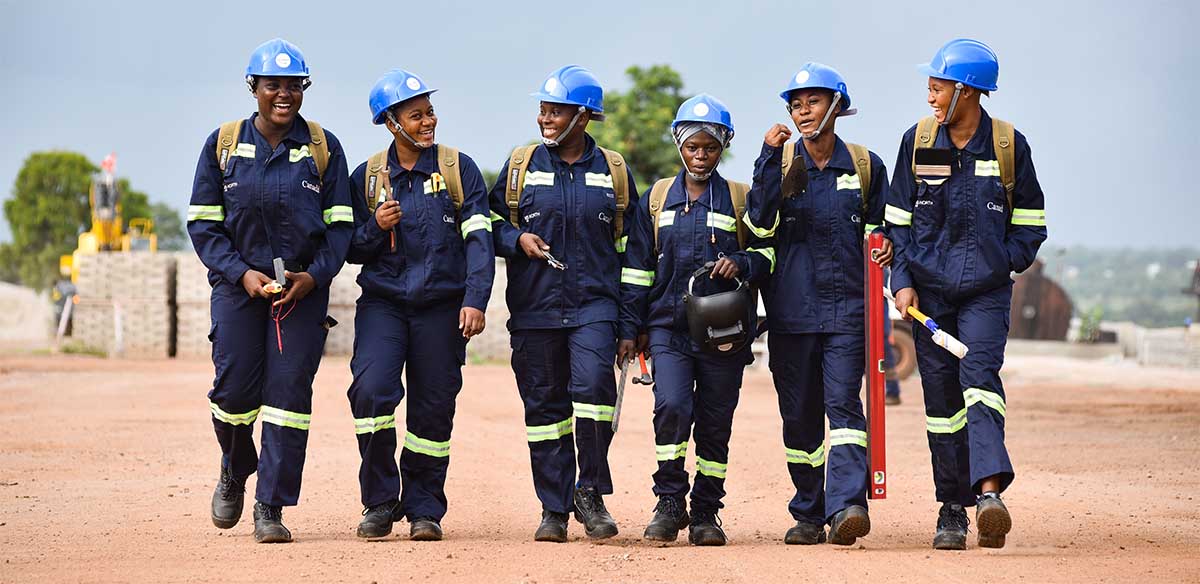
Empowering Women in Industrial Trades in Northern Ghana
Funded by Global Affairs Canada. Implemented by Alinea.
Empowering Women in Industrial Trades in Northern Ghana.
Funded by Global Affairs Canada. Implemented by Alinea.
Building the economic well-being of women through industrial trades.
In northern Ghana, persistent gender stereotypes prevent women from entering the labor force, often confining them to the informal sector in insecure, poorly compensated or exploitative jobs. A major challenge for women in northern Ghana is limited access to decent work, especially in skilled trades. Many women, seeking independent income, migrate to the South to work as head porters in large markets or engage in hazardous work at artisanal mining sites, making them vulnerable to exploitation and even forced into sex work.
The Women’s Economic Empowerment through Industrial Trades Training in northern Ghana project (WEE-North) helps women break into this traditionally male-dominated workforce by training them as welders, plumbers, carpenters, bricklayers, and electricians. WEE-North offers an innovative and distinctive ‘Training to Employment’ approach of competency-based, hands-on training for young women. This training equips them with the skills needed to tap into economic development and growth opportunities within their own communities, ultimately enhancing their productivity and income.
WEE-NORTH collaborates closely with Technical and Vocational Education and Training (TVET) institutions, industries, and communities to address entrenched gender stereotypes and barriers that hinder women’s access to these well-paying yet typically male-dominated occupations.

No jobs found
First Ever Female Small Engine Services Partnership with Apsonic Motors, Ghana
Motorbikes are the most common means of transportation in Northern Ghana. This means that motorbike service providers and product sellers are doing good business. WEE-North trains young women in small engine repairs so that they can earn income repairing and servicing motorbikes. “WEE-Repair It Right” Motor Maintenance is the first ever female-operated auto mechanic shop in Northern Ghana to engage in servicing, repairs, and maintenance of motorbikes. WEE-Repair is providing a livelihood for 10 WEE-Group members, as well as promoting greater inclusion of women in the auto-mechanic industry. The initiative has challenged existing gender norms and stereotypes surrounding women in the North. The team continues to be an inspiration for other young women to venture into this lucrative sector which has been dominated by men for decades.
WEE-North trainee becomes Energy Commission Licensed Electrician
Grace Wumbei is a young woman from Yendi Municipal in Northern Ghana. When she joined the WEE-North Project to train as an electrician, she had fears that society would not welcome her. Her passion drove her to pursue Electrical Installation under WEE-North’s Training to Employment Program at Dabopka Technical Institute. After successfully graduating from her trades training with WEE-North she proceeded to have her Workplace Experience Learning at Volta River Authority in Tamale. Today, Grace is a certified electrician with a Proficiency 1 certification and a license from the Energy Commission of Ghana.
Gender Transformation in Communities
The transitioning of formerly timid young women to community leaders through the WEE-Groups is one of the ongoing efforts of WEE-North. WEE-Group members sit with chiefs and high-profile leaders in their communities to dialogue on women’s contribution to societal development. They are given audience to participate in making meaningful decision in their communities. In July 2023, the Women’s Economic Empowerment Group (WEE-Group) in Bunkprugu Nakpanduri District was officially launched at the office of the District Assembly. The District Chief Executive expressed his profound gratitude to WEE-North for finding his district worthy of such a great innovation. He also added that all plumbing problems in his house are repaired by WEE-North graduates.
The entire assembly pledged to continuously support the young tradeswomen to aspire to greatness while serving as role models to other young women in the community. The chief of Bunkprugu Nanpanduri also applauded the team for the great work done and promised to give space for setting up the WEE-Group’s business and workshop.
Post-training support is contributing to the engagement of the target beneficiaries to absorb, digest and fully utilize their new skills. The WEE-Group approach provides continuous guidance for beneficiaries and has led to the active participation of women in industrial trades in Northern Ghana.
For the very first time in northern Ghana, 55 groups have been formed for young women offering services in the industrial trades. This group employment model has been promoted by stakeholders as a well-structured Local Economic Development (LED) prototype. WEE-Groups have been successful in their operations with support from industries, TVETs and communities.
WEE-Groups’ services are now advertised widely across northern Ghana, and a hotline allows contractors and employers to contact the required tradeswomen in their districts.
Jennifer and her Quest to Bring Electricity to her Mother’s Home
Jennifer is a 23-year-old young woman from Bunkpurugu District in the Northeastern part of Northern Ghana. Jennifer’s dream was to be a nurse because that was all she saw women in her community aspire to be. After senior high school, her mother managed to build a small house for her family. After building, she couldn’t finish the house, but the family had to move in anyway. Jennifer and her family had to live there without electricity.
Jennifer heard about the WEE-North project’s Training to Employment Program from her community Assemblyman. She applied to learn electricals with the primary goal of coming home to provide electricity for her mom. Jennifer’s goal made her take every step of the training seriously. After the training and workplace experience learning (WEL), she went back to her community with the hope of getting work in the electricals sector.
Jennifer approached her District Chief Executive with her skills and toolkit. The District Chief Executive said, “Can a lady like you practice electricals? Are you sure?” Jennifer showed her Proficiency One examination certificate to him to confirm her skills. Jennifer was tested by mounting a streetlight, and was successful, impressing her employer. She earned 1,500 Cedis (CAD 172) for mounting three streetlights in a day. Jennifer used the money to purchase electrical supplies and wired her mother’s house.
“I feel fulfilled. I have given my mother and siblings electricity and comfort by using my own skills and resources. My mother is so proud of me and keeps telling everyone that I gave her light. This has served as a marketing strategy for me, and I get to work on new buildings in my community and maintain their electrical systems. I am proud of myself”.
Jennifer currently works with WILKINS Engineering as a Field Engineer. She earns a decent income to support her further education. Jennifer hopes to be a well-known commercial electrical engineer. She has registered her start-up company where she provides domestic electrical services and advice to people in Northeast Region.
Gender Transformation within Industry in Northern Ghana
Northern Ghana’s trades industries, like most regions, are male dominated. The WEE-North project initially encountered a negative perception from most industry partners about women’s involvement in industrial trades. However, through WEE-North’s Workplace Experience Learning programme, industries had direct experience with skilled tradeswomen. This exposure to tradeswomen changed their perceptions. Impressed by their abilities, industry partners committed to hire these women and prepare them for supervisory roles.
Because our ultimate outcome is women’s economic empowerment, the WEE-North project’s success depends on industry partners’ support. Their support was secured by orienting industries to be gender responsive. During the reporting period, 52 industries which are in trainees’ home communities became hosts to 125 trainees for Workplace Experience Learning. This localized strategy reduced travel concerns and empowered trainees as community ambassadors for women in the trades. In addition, external WEL opportunities with four renowned industries for 29 trainees in Southern Ghana have significantly enriched their skills which will make them more marketable in their communities upon their return.
WEE-North’s Workplace Experience Learning programme is crucial to our tradeswomen’s success. Although they may not realize it, our industry partners are fulfilling their Corporate Social Responsibility (CSR) without recognizing its value. The WEE-North project highlighted this issue in a workshop with 102 industry partners who hosted 126 trainees for Workplace Experience Learning (WEL). Before we explained the ideas behind CSR and praised them for their contributions, industry partners demanded payment for taking on trainees for WEL. However, after understanding their role and its impact, industry partners recognized their contribution as CSR and committed to promoting women’s economic empowerment in their communities. All industry partners participating in WEL received a Certificate of Appreciation signed by the Commission for TVET’s Director-General and the Field Manager of WEE-North.
Results to Date
Improved access to trades training enables young women the opportunity to gain skills that enhance their employability, helping them to earn income to care for themselves and their families. WEE-North has trained 1799 young women in industrial trades across northern Ghana in ten technical programs offered at 17 institutions. These programs include carpentry, welding, plumbing, electrical and solar installation, block laying, tiling, plastering, painting, small engine repairs, and vinyl and artificial grass installation.
Economic empowerment results, as measured by improvements in both social and financial domains are beginning to show. 61.5% of employed training graduates report that they are working in their chosen trade. Many report increased decision-making and influence in areas such as family planning, getting a job, getting married, spending their own income and buying/selling small household items. Moreover, young trainees report greater self-confidence after completing the training program.
Positive attitudes and perceptions about women working in the trades are also being reported by industry partners, and TVETs are better prepared to train young women in non-traditional programs as a result of their collaboration with WEE-North.
Women’s Economic Empowerment
Women’s economic empowerment is comprised of two components: 1) economic advancement and 2) power and agency. Both components are inter-connected, and both are necessary to achieve better lives for women and their families (ICRW, 2016). But this takes more than training to achieve. WEE-North addresses entrenched gender norms that prohibit women from working in well paid and high demand occupations like the industrial trades, which are typically male dominated. WEE-North’s training to employment program is innovative because it is the first of its kind to be offered in Northern Ghana, providing access to high demand and remunerative jobs in the industrial trades.
To succeed in a male-dominated workforce, young tradeswomen need support. Most trades-related employment in the north is self-employed, which is why the training integrates empowerment, entrepreneurship and job readiness classes into its program. Young tradeswomen need basic knowledge and principles for entering the business environment.
WEE-North trainees are also young (18-25) and new entrants to the workforce. WEE-North provides an all-female networking program that keeps them connected to each other and to the workforce technically, socially and financially while offering them access to group employment opportunities. Through an all-female mentorship program, newly graduated tradeswomen are paired with experienced tradeswomen after training.
Gender Responsive Programming
Creating safe, healthy, and gender-responsive learning and work environments is central to WEE-North’s empowerment approach. The program’s focus on training young women ensures they have access to trades training programs, providing them with the skills required to secure well-paying trades jobs that are in high demand. However, the recruitment and admissions systems of Technical and Vocational Education and Training (TVET) institutions often channel young women into programs like fashion and hairdressing, which are both low-paying and oversubscribed.
WEE-North supports TVETs to make the industrial trades training environment more welcoming for women. This includes providing gender-responsive pedagogy training reducing bias in the classroom and ensuring that recruitment and administrative practices do not deter young women from choosing non-traditional careers.
Health and safety assessments help TVETs meet basic standards, ensuring that training workshops are safe for both young women and men. Personal health and on-the-job safety are vital for success, and WEE-North equips every trainee with personal protective equipment (PPE) suitable for their specific trade specialization.
WEE-North closely collaborates with industry partners to provide safe, secure and inclusive workplace learning experiences after their training. Industry hosts receive gender-sensitive workplace orientations that cover best practices in harassment prevention among other topics, helping them to better prepare for and retain female employees.
Global Goals Week: WEE-North Empowers Women Through Trades
By the end of 2022, we will have trained 850 young women from all 55 districts in the five regions of Northern Ghana. They will bring much-needed skills into their communities, some of which do not have skilled tradespersons. Women will also have a source of income through valued and decent work.
Gender Equality Week: Changing the Face of Industrial Trades in Northern Ghana
A new campaign is underway to inspire women in Northern Ghana to train to join the workforce as welders, carpenters, plumbers, bricklayers, electricians and more.
Gender Equality Week: Alinea empowers women in Ghana
In rural northern Ghana, women ask their husbands for consent to work in jobs where they earn money. They also require approval from their husbands to travel outside of their homes and spend time in other communities. Alinea’s newest project to empower women is underway in this region. Funded by Global Affairs Canada, WEE-NORTH supports young women to train in non-traditional trades. The goal is to help them join the workforce as welders,...
HOW WEE-NORTH WORKS
Trades Training for Women
Workplace Experience Learning
Group Employment
Working with Government
Community Outreach
Women’s Representation in the Trades
Changing the face of Industrial Trades in Northern Ghana
WEE-NORTH provides high quality, intensive training in selected industrial trades for young women to build the hands-on skills and experience needed to access decent work. The project partners with selected TVETs across northern Ghana to offer practical industrial trades training programs, focusing on achieving competencies through using hand tools and equipment in the workshops. The WEE-NORTH team facilitates training to instructors by certified master trainers in selected trades areas (carpentry, welding, brick laying, electricals and plumbing) to develop their own skills so they can then deliver trades training to young women. Health and safety are important learning objectives for all programs offered. Many successful trainees will go on to practical on-the-job training as apprentices or interns.
Trades Training for Women
WEE-NORTH collaborates with 10 Premier Technical and Vocational Education and Training (TVET) institutions at the secondary level, 3 technical universities, and 4 private training schools in northern Ghana to offer high-quality, intensive training in selected industrial trades to young women in northern Ghana. To achieve this, WEE-North has worked closely with these institutions to deliver competency-based industrial trades training programs in safe, well-equipped workshops. Currently, young women have the option to train in carpentry, welding, bricklaying, tiling, electrical and solar installation, small engine repair, plumbing, plastering, painting, and vinyl and artificial grass installation.
In some cases, WEE-North invested in upgrades to existing workshop facilities and equipment to offer the training. An intensive short course curriculum was developed for each trade using master tradesmen and TVET subject matter experts. The courses are designed to be delivered in 8 weeks of intensive competency-based training. Health and safety objectives are integrated into the curriculum. The course consists of 36 hours of practical instruction each week for 8 weeks, with 6 hours per week of empowerment training focusing on fundamental business skills, job readiness, and personal development. To ensure instructors are well-prepared technically, WEE-NORTH delivers a Training of Trainers program led by certified master trainers. Instructors receive training in Gender-Responsive Pedagogy to ensure a quality learning experience that addresses any unique challenges women may face in acquiring industrial skills.
Upon completing the program, trainees are assessed by the Government’s TVET Service at the Proficiency 1 level. Passing this assessment after two months of intensive training earns them a certificate, enhancing their employability for decent jobs.
All trainees graduate fully equipped with personal protective equipment (PPE) and toolkits for their trade, with the contents carefully chosen by previous graduates who identify the most suitable and high-quality tools. Many successful trainees proceed to gain practical Workplace Experience Learning placements before securing full-time or contract employment. Some even choose to pursue further studies in the trades at universities, often financing their education by working part-time on construction sites or in repair work.
Workplace Experience Learning
WEE-NORTH collaborates with over 100 businesses in Ghana to provide Workplace Experience Learning (WEL) to young tradeswomen upon the completion of their training. Creating a positive on-the-job learning experience is essential for the success of women in their future jobs. The project works closely with trades businesses and employers throughout Northern Ghana to match female trainees with appropriate businesses.
Our approach focuses on placing newly trained tradeswomen as near to their homes as possible, allowing them to become familiar with local industries and contribute to their regional economies. The majority of industries in the North are small to medium-sized, although the project has also partnered with a few larger companies in the South of Ghana. All industry partners enter into agreements that ensure each tradeswoman receives a safe and high-quality on-the-job training experience.
To support their transition to the workforce, many businesses have continued with apprenticeships and employment. Trainees benefits during their practical internships in actual industrial settings, often accessing more advanced machinery and equipment, allowing them to learn while fulfilling real client orders and contracts under the supervision of master craftsmen. They produce goods and provide services, further building on their training experience. These practical internships are a crucial step toward gainful employment in the trades. While most internships last for one month, many women choose to continue with these companies, gaining additional valuable on-the-job experience as apprentices or employees.
Prior to receiving WEE-North trainees, industry hosts receive gender-sensitive workplace training to better understand the unique challenges faced by young women in Northern Ghana. Industry partners are encouraged to acknowledge and challenge gender stereotypes, inspiring women to achieve their fullest potential in the trades. Workplace learning placements are closely monitored by WEE-North staff.
Group Employment
In Northern Ghana, the women working in the industrial trades is unprecedented, which is why WEE-North believes in providing ongoing support to newly trained tradeswomen. In an economic context where the unemployment rate of young women is high – forming employment groups strengthens women’s cohesiveness and access to networking and other opportunities. Fifty-five (55) Women’s Economic Empowerment Groups (WEE-Groups) have been formed with representation from all 55 districts across Northern Ghana: one in each district. Efforts have been made to ensure that all trades are well-represented in the groups, creating multi-trade associations. WEE-North hopes these groups will become the first women’s trade groups in Northern Ghana.
WEE-Groups are mentored by experienced tradeswomen, the majority of who run their own trades business. They are joined by successful WEE-North graduates who have (since their training) established their own businesses in the trades. WEE-North has trained 25 tradeswomen in mentorship and coaching as mentors for the 55 groups. Finding 25 qualified and experienced tradeswomen to serve as mentors was no easy feat as their numbers are few in the north.
WEE-Groups function as independent group employment entities with the ability to form agreements and partnerships with any organization or agency to enhance their potential as tradeswomen in the workforce and as advocates for women in the industrial trades. Each group has its own leadership and a set of activities: WEE-Make, WEE-Fix, WEE-Save, WEE-Train, WEE-Lead, and WEE-Give (please refer to the downloadable PDF for more details). All 55 groups collectively form the WEE-North Network, an organization of tradeswomen throughout Northern Ghana. Local District Assemblies and contractors are enthusiastic about the presence of WEE-Groups in their areas. Apart from providing employment opportunities, District Assemblies have offered land and buildings to WEE-Groups for their workshops.
Working with Government
WEE-North operates under the leadership of the Ministry of Education, specifically the TVET Service for implementation at secondary cycle technical Institutes, and the Commission for TVET (CTVET) for the purpose of WEE-North’s work supporting regulation and promotion of TVET at all levels. TVET Service has five offices in Northern Ghana: Tamale in Northern Region, Bolgatanga in Upper East Region, Wa in Upper West Region, Damongo in Savannah Region, and Walewale in Northeast Region. Although the project does not yet implement in TVETs in Savannah or Northeast Regions, we have a close relationship with all TVET Service offices because we recruit young women from all regions. WEE-North has collaborated with the Commission for (CTVET) to bring the ‘MY TVET’ campaign to junior high schools in Northern and Northeast Regions, supporting and monitoring TVET Clubs. The project has also supported the dissemination of CTVET’s new Apprenticeship Policy to 100 of our industry partners and sponsored three national TVET promotion events held in Accra, including Women and TVET Forum.
Other important government allies include the Ministry of Gender, Children and Social Protection, Ghana Education Service, the Youth Employment Agency, Ghana Enterprises Agency, and the National Entrepreneurship Innovations Program (NEIP).
Community Outreach
Gender norms are deeply rooted, especially in a highly male-dominated sector like the industrial trades. WEE-North’s motto is “Changing the Face of Industrial Trades in northern Ghana”. This requires engaging with communities for gender transformation. Through carefully planned durbars, WEE-North reaches deep into communities to recruit young women – with the support of family and community. This is because once a young woman has been trained and returns to her community to work, she needs ongoing support of family, neighbours, and local businesses to build her trades business and career. Trainees actively seek support from industries in their communities to do their Workplace Experience Learning, apprenticeships, and to get contracts. Many WEE-North tradeswomen have families of their own. Working close to home allows women to work and attend to their families. It is important for communities, especially men, to understand that women can undertake work in male-dominated trades and be wives and mothers which is why traditional leaders, chiefs an, fathers and brothers are all targeted by community durbars with messages tailored to gain their support.
WEE-North uses community radio and social media to promote WEE-North tradeswomen and to increase their visibility with local government, traditional authorities, and the private sector. Once WEE-Groups are formed in their districts, their first activity is to visit local authorities, both District Chief Executives and chieftains and Headmen to gain their support to work as tradeswomen. So far, reactions from these authorities have been positive, often resulting in positive recognition and work. WEE-Groups also engage in WEE-Give activities, which show how they give back to their communities by repairing government facilities, such as district offices, schools, and health centres while also serving as a demonstration of their acquired skills and capabilities. Their volunteer efforts give their work credibility and acceptance in their communities.
Women’s Representation in the Trades
Representation of women in the industrial trades in northern Ghana is limited. A search for women Trades Mentors yielded only 15 women who were actively involved in the trades as businesswomen or teachers. A recent survey of trades associations in Northern Ghana found that out of 31 groups, only three had women on their executive boards. Those three were also identified by WEE-North and are now Trades Mentors for WEE-Groups. The situation in Southern Ghana is better than in the North, but also limited. However, with 2,000 young women trained in industrial trades, the WEE-Group Network may become the network of choice to represent women’s interests in the trades in the North. While these young women are busy finding jobs and establishing their WEE-Groups, WEE-North is preparing the ground for them to be effective advocates for women in industrial trades.
Because an important outcome for WEE-North is the strengthened representation and voice of women in the trades, the project is working with trades associations to support them to become more gender-responsive and their membership more gender-sensitive. WEE-North has offered capacity building to almost 300 industries and over 30 trades associations in Northern Ghana to encourage them not only to be gender-sensitive in their operations, but also to intentionally partner with the WEE-North Network and WEE-Groups in their areas. Special training and incentives are offered to industries and associations for this purpose.
The Association for Ghanaian Industries (AGI) is an important ally in this pursuit. Working together with WEE-North, AGI’s northern chapter will inaugurate the first women’s caucus in the north. Representatives from women’s special interest trade groups from the South are engaged in capacity building with women AGI members in the North. WEE-North is encouraging its women Trades Mentors and WEE-Group executive members to join AGI and become active in the women’s caucus.
Moreover, WEE-North is also a member of the Canada-Ghana Chamber of Commerce. The Chamber, along with Canada’s Trades Commissioners in Ghana, takes every opportunity to promote WEE-North and to represent women in the trades.
Small- and medium-sized businesses are the backbone of the economy in northern Ghana. After completing an intensive training-to-employment program, young women have the opportunity to participate in an advanced entrepreneurship bootcamp to further hone their business ideas and gain confidence and skills required for success in a male-dominated and highly competitive business environment.
The bootcamp is an one-month intensive applied learning program intended to equip young women with the entrepreneurship skills and competencies they need to launch and run successful small businesses. The bootcamp focuses on both “hard” and “soft” business and entrepreneurship skills, including business planning, enterprise management, leadership and negotiation skills. By the end of the entrepreneurship program, women have developed their business idea into an operational plan to launch a new micro or small business or enter self-employment in industrial-related sectors.
As a follow-on to the entrepreneurship bootcamp, young women benefit from a mentorship program pairing them with experienced female business owners and entrepreneurs to support the implementation of their business plans.
Pursuing a career in the industrial trades likely means young women will work in male-dominated workplaces. The WEE-NORTH team supports young women in building confidence and workplace readiness skills by offering empowerment bootcamps as a mandatory component of the training-to-employment program. For one week, female trainees learn how to manage issues relating to gender inequality, sexual rights, harassment and navigating a male dominated workplace.
Personal health and safety are also paramount to success. WEE-NORTH provides personal protective equipment for every trainee that is appropriate for her trade specialization. This step ensures physical protection for trainees so they can learn to safely operate equipment, reduce hazards and dispose of waste materials in an environmentally-sound manner during training and in the workplace.
Industry Engagement and Partnerships for Trades Training
Industry creates the demand for skilled workers. Opportunities for practical attachments are the most important step in accessing gainful employment in the trades. Without a practical learning opportunity, many young trainees either go on to pursue more studies or end up without decent work in their trade.
WEE-NORTH looks to its industry partners for these practical attachments. The project team works with industry to identify their needs and matches them with female trainees who have completed the program and possess the technical skills and workplace knowledge to succeed. WEE-NORTH also supports employers by offering workshops to help them better prepare for and retain female employees.
info@weenorth.org
info@weenorth.org
Aligned with UN Sustainable Development Goals:

